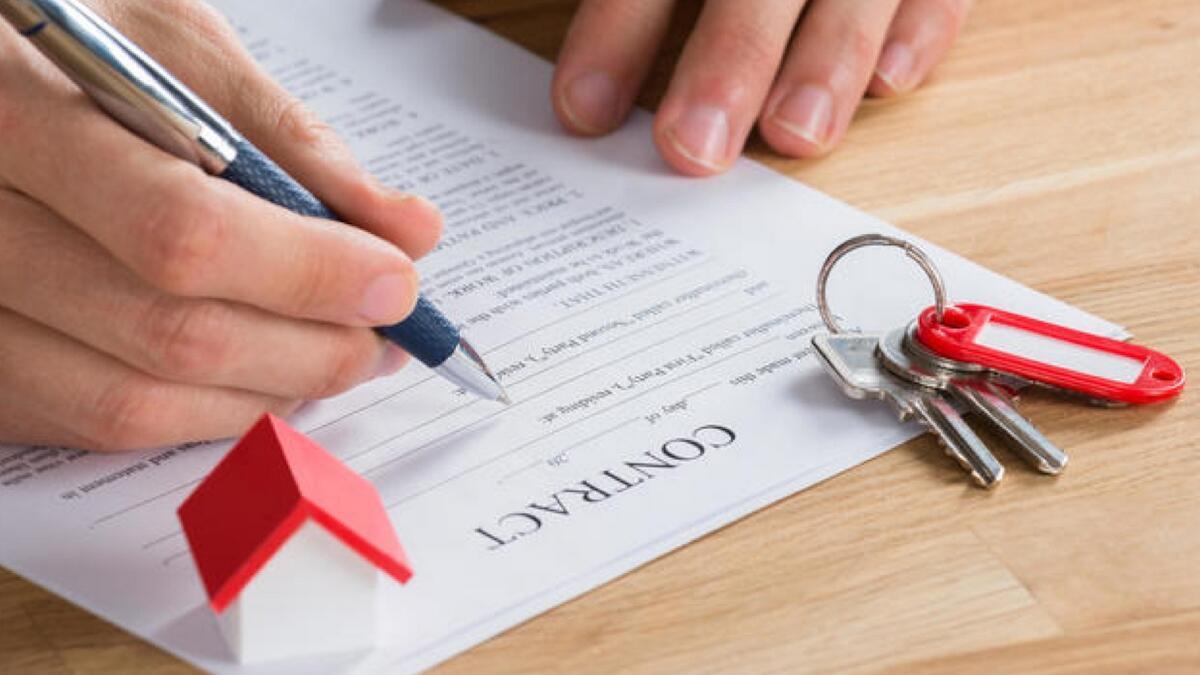
Leasing Property In Dubai? Rent Rates, Ejari, Eviction Notice Explained
Last updated: Sun 14 Jul 2024, 8:38 PM
When it comes to the property scene, Dubai doesn't back down, with its ever expanding property market. For those who may be unable to buy a place for renting purposes, leasing is always an option.
For expats residing in Dubai, the Ejari by RERA is a holy grail to knowing the emirate's laws for both landlords and tenants. This is also the online platform where landlords and tenants are required to register after coming to an agreement.
The Law No. 26 of 2007, known as the 'Law Regulating Relationship between Landlords and Tenants in the Emirate of Dubai' covers all laws and rights regarding rental contracts and all leased properties. Only hotel accomodations and properties provided to employees by companies are the exceptions to this law.
Stay up to date with the latest news. Follow KT on WhatsApp Channels.
From the required documents to crucial laws, here is a guide to leasing a property in Dubai.
Documents requiredAfter finding a suitable apartment or villa, tenants must make sure to keep the following documents updated and handy at all times.
- Passport copy Copy of residence visa Copy of Emirates ID A cheque for 5 per cent of the total annual rent
To secure a tenancy contract, residents must submit several documents to the Dubai Land Department. This makes the lease agreement binding to both the landlord and tenant. It is also essential as it connects utility services, which includes water, electricity and gas and telecommunications services.
- Passport copy Residence visa copy Emirates ID copy Proof of paying the security deposit
Specifying the term of the rental contract is crucial to the agreement, as without this it can become difficult to prove the alleged term in case of any dispute.
After securing your lease agreement, tenants must register for Ejari. These are the documents required to do so:
- Original contract document Copy of Emirates ID Proof of security deposit payment and cheques Passport copies of the landlord and tenant A copy of the landlord's ownership certificate for the unit Residence visa copy The unit's (9-digit) number, which is registered with DEWA.
While renting in Dubai, it is important to register with DEWA as well. Here is what is required to open a new DEWA connection.
- DEWA premises number Ejari number Landlord's passport copy Tenant's passport copy & Emirates ID DEWA form Security deposit payment
Speaking to Khaleej Times, Clementina Kongslund, a senior client manager at Exclusive Links Real Estate, reiterated the following points that one must keep in mind when leasing a property.
- Make sure the agent you deal with is RERA registered. Download DubaiRest app and check there the agents and the agencies. Hand over cheques or cash only when you get a receipt for it with all the details of the company. If unsure, go to the company's office and make the payments there. Agency commission is 5 per cent+VAT. The security deposit is 5 per cent for unfurnished units and 10 per cent for the furnished ones. At the time of handover of the property, ask the agent for a handover report where everything is written. Make pictures to prove the condition of the unit.
Tenants in Dubai have the option of paying their landlords through either one payment or multiple payments.
For those who have consulted agents as the middlemen, they often require a commission fee of up to 5 per cent of the total amount of rent.
According to RERA law, landlords can increase the rent by 5 per cent if the current rent is 11 to 20 per cent less than the average rent in Dubai. They can also increase the rent on the renewal of lease contract.
On the other hand, tenants are required to pay on the agreed date. If there is no such date, then they may pay advance annual rent in four instalments.
Housing fees are to be paid to Dubai Municipality, which is calculated at the rate of 5 per cent of the yearly rental charges. These payments are added to the monthly electricity and water bills.
Any disputes that may take place between the landlord and tenant are to be solved through the Rental Dispute Centre at the Land Department in Dubai.
Getting evictedTenants may get evicted from a property due to the following reasons:
- If a tenant fails to pay rent within 30 days of the notice period, a landlord may evict them. If a tenant uses the property for anything other than what it is intended for, they may be evicted. If the property needs any renovation, a landlord may evict the tenant. This decision has to first be approved by the Dubai Municipality. If a tenant conducts any illegal activities in the property or damages the place, they may be evicted.
ALSO READ:
-
Leaving Dubai for good? 8 things expats need to do before the big move
-
UAE: Fake property listings, job offers; police warn against scammers trying to dupe residents
-
Dubai: New residents beat rising rents by buying properties within 2 years of arrival

Legal Disclaimer:
MENAFN provides the
information “as is” without warranty of any kind. We do not accept
any responsibility or liability for the accuracy, content, images,
videos, licenses, completeness, legality, or reliability of the information
contained in this article. If you have any complaints or copyright
issues related to this article, kindly contact the provider above.


















Comments
No comment